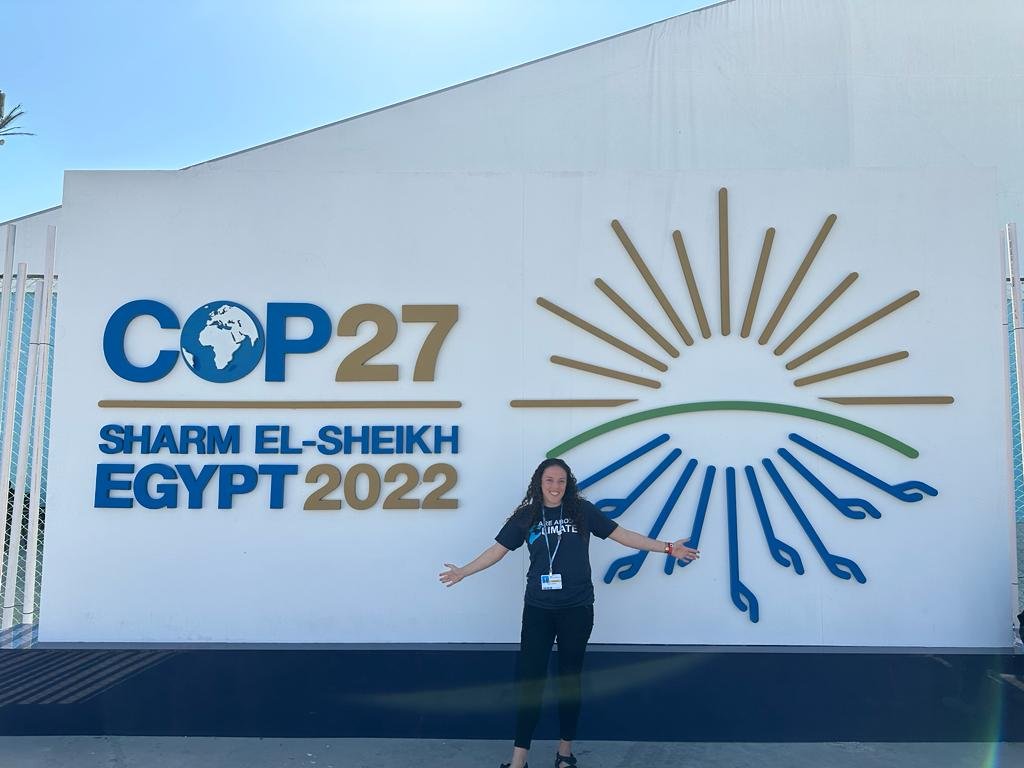Co-Executive Director’s COP27 Reflections
Hailey Campbell
Co-Executive Director
I can't believe this was my third COP!
Though media attention moves on, ice caps continue melting, temperature continues to rise, and wildfires continue to rage. When it comes to keeping 1.5 alive, phasing out fossil fuels, and collaborating with frontline communities, #COP27 - or better known as the "implementation COP", can be seen as a failure.
Yet, among the 600+ fossil fuel lobbyists and the world's largest plastic polluter sponsoring COP, there remains a glimmer of hope. To me, that hope comes in the form of young people and frontline communities who stand in solidarity knowing that anything less than ambitious, inclusive action is a death sentence for nature and humanity.
Three of my biggest takeaways include:
Bottom-up, grassroots movements are leading the way on climate action. Though language on phasing out fossil fuels was not included in the final text, there was immense power from grassroots movements, like Rise Up, Fridays for Future, and the Children and Youth Constituency (YOUNGO), working together to lead by example and continue to push for policy changes. As we return to our daily lives, these groups are leading the charge on tackling the climate crisis and everyone should be working together with them.
Young people were recognized as official stakeholders in designing and implementing climate policies. I was honored to lead efforts with YOUNGO's ACE Working Group where we spent 20+ in negotiation rooms, 10+ hours chatting with party stakeholders, and countless pages drafting decision text for the ACE Action Plan. Our efforts secured our first-ever official recognition as stakeholders, funding for young people to participate in climate conferences, and so much more! My biggest takeaway is that hard work and relationship building takes time, but pays off (if done well) in the end. Read more about this feat here!
Money is significant for tackling the climate crisis, but it's not a magic wand. To everyone's surprise, the COP succeeded in establishing an important loss and damage finance facility. However, there is not enough money in the world that can bring back biodiversity, culture, or the laughter and hugs of a loved one whose life was lost to preventable climate shocks and stresses. As such, it is my hope that climate finance and rapid emissions reductions are delivered for COP28.
My most cherished moments at COP include participating in the People's Plenary and Culture COP. Both events opened my eyes to the wisdom of indigenous leaders and the welcoming space for growing to unlearn systems of oppression. My hope for COP28 is to see ACE activities being implemented and young people leading the way as co-creators of a fossil fuel free COP!
Opeyemi Elujulo
Co-Executive Director
It’s been almost a month that COP27 ended in Egypt, and as the dust settles on its expectations and disappoints, I am taking consolations in the shared red-letter moments of listening to the stories of hope of grassroots actors, particularly young people who are leading innovative solutions in their communities through a sheer force of will, and the rich exchanges with like-minded individuals that formed the highlights of my participation.
The race to 1.5 has repeatedly communicated its urgent need for a deliberate, and concerted effort, one that should be intersectoral and intergenerational, with justice at its center. However, while acknowledging that winning the race against climate change won’t happen overnight, it remains disappointing to see the continued lack of ambition in the commitments from world leaders, at least not so much it can align solutions with the problems at the needed scale to achieve set goals by 2030.
Several reports have documented that the people most at risk to the impacts of climate change are those from countries who depend on natural resources and agriculture that is rain-fed for economic mainstay. Unfortunately, this illustration fits the realities of my region, and home country (Nigeria), where agriculture, despite accounting for about 1/3 of the country’s GDP, is still largely rain-fed, and the high dependence and exploitation of natural resources for livelihoods and subsistence cannot be overemphasized, suggesting that, indeed the worst is yet to come for the smallholder farmers whose income is already not reflective of their investment as a result of the current late onset and early cessation of rainfall, coastal dwellers whose lives and livelihoods are currently ravaged by the rising seas, droughts in northern Nigeria that remains the major driver of conflict-causing forced migration of herders, and other frontline and most at risk communities, except improved measures are innovated, and met with formulated and implemented need-based policies.
While these expectations were cut short at COP27, I join other climate leaders in different parts of the world in the hope that COP28 next year will be the COP filled with ambitions, celebrates progress and successes, and advances us forward in terms of implementation and delivery on pledges, without holding back.


